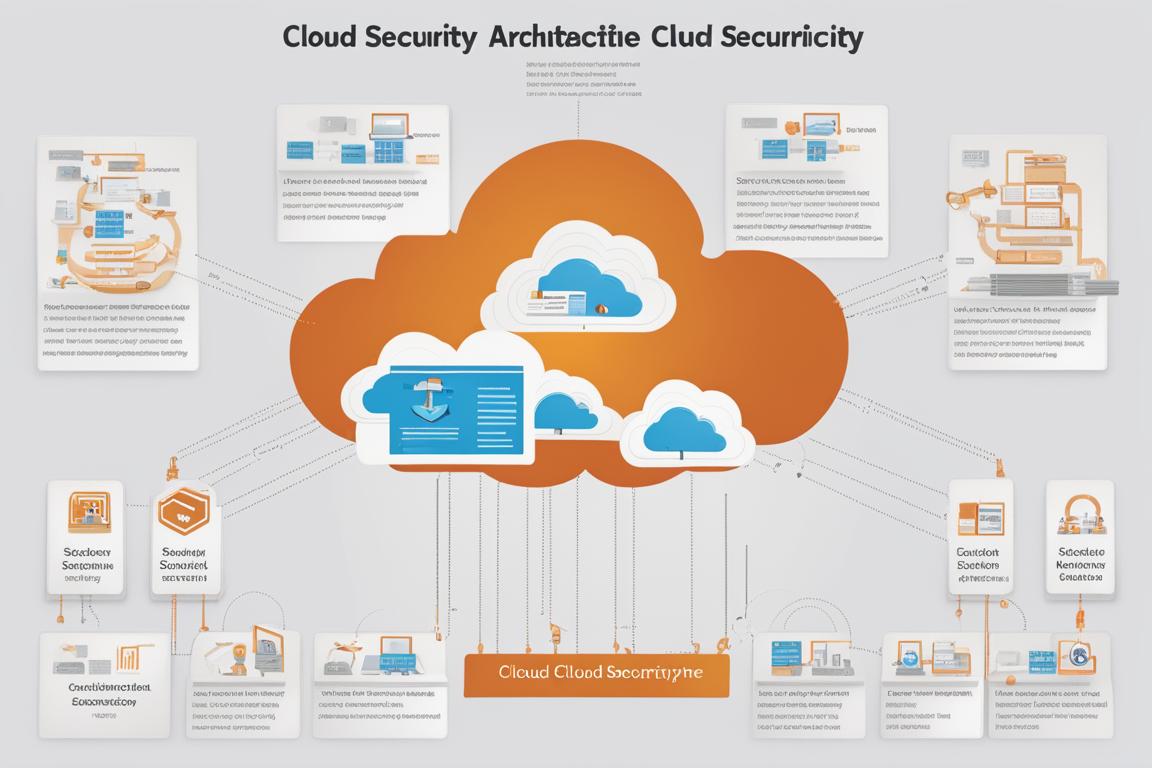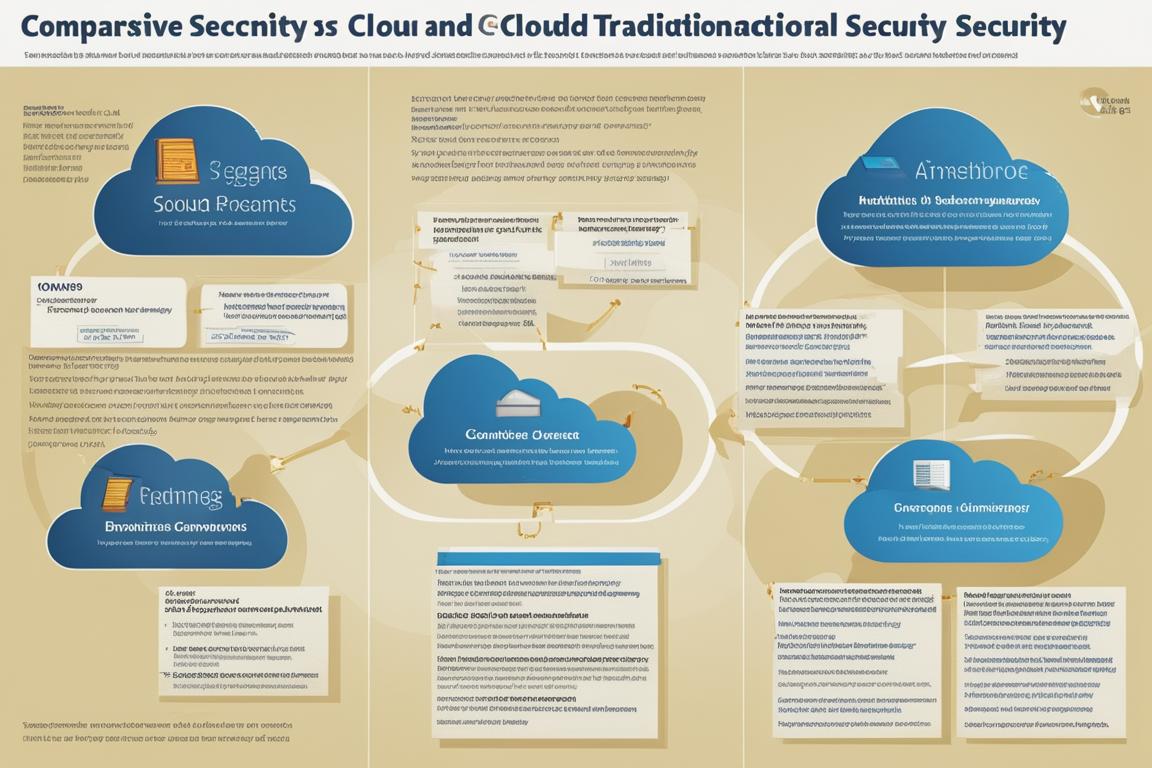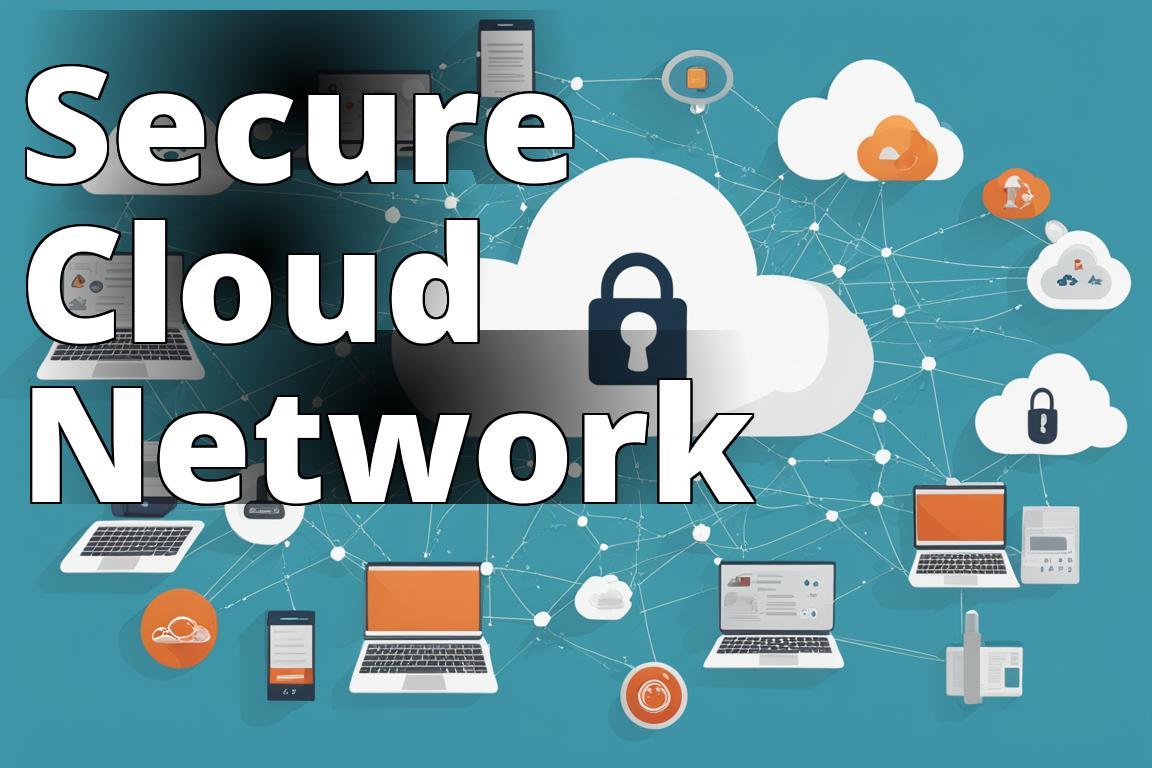Cloud security is the fortress that stands between your data and the myriad of threats that loom in the vast expanse of the internet. Its not just a matter of implementing a few security measures; its about creating an entire ecosystem that ensures the safety, privacy, and compliance of data across online-based platforms. This isn’t just about protection – it’s about enabling businesses to embrace the cloud without fear.
Learn about Cloud and Security
- Understand what cloud security is and how it works.
- Discover the benefits and challenges of cloud security compared to traditional security.
- Learn about best practices, tools, services, and certifications in cloud security.
What is Cloud Security?
Cloud security encompasses a broad range of policies, technologies, applications, and controls utilized to protect virtualized IP, data, applications, services, and the associated infrastructure of cloud computing. It is a critical piece of the IT fabric that allows enterprises to move forward in an ever-connected world without being hamstrung by fear of data loss or breach.
In my early days of exploring cloud technologies, the concept of handing over critical data to a third party seemed ludicrous. However, witnessing the robust security measures cloud services deployed to protect data changed my perspective. From personal experience, the transition from on-premises servers to cloud-based solutions not only streamlined operations but also enhanced our data security posture.

How Does Cloud Security Work?
Cloud security is a multi-layered approach that starts from designing secure infrastructure to implementing end-user access controls. It involves physical security managed by the cloud provider and virtual security managed by cloud security tools that you implement.
- Physical Security: Managed by the cloud provider, this includes securing the physical servers against unauthorized access and threats.
- Network Security: Involves protecting the data transmitted over the network through encryption, secure VPNs, and other techniques.
- Application Security: Focused on keeping the software and devices used by businesses secure from threats.
- Endpoint Security: Ensures that client devices accessing the cloud are secure.
- Data Security: Involves encryption techniques, strong data access controls, and audit logs to ensure that data stored in the cloud is safe from unauthorized access and tampering.
In practice, during a project at a previous company, I was part of a team that implemented a multi-factor authentication system as part of our cloud security protocol. This significantly reduced unauthorized access risks and is something I advocate for vehemently in any cloud setup.
Learn more about how cloud security technologies work
Cloud Security vs. Traditional Security
Comparing cloud security with traditional IT security is like comparing an electric car with a gasoline car. Both aim to achieve the same basic goal of transportation, or security, in our case, but the methods and efficiencies differ significantly.
- Scalability: Cloud security offers scalable security measures without the need for physical hardware upgrades.
- Cost-Effectiveness: With traditional security, a significant investment in physical devices, as well as in their maintenance and upgrades, is required. In contrast, cloud providers can offer more advanced security solutions at a fraction of the cost due to their large-scale operations.
- Accessibility: Traditional security often limits accessibility to within the office premises. Meanwhile, cloud security facilitates secure access from anywhere in the world.
From my experience, transitioning to cloud security solutions provided not just better security but also a more flexible, scalable IT infrastructure.

Cloud Security Benefits
The advantages of cloud security are immense, especially in a digital era where data breaches and cyber threats are rampant.
- Cost Reduction: By utilizing cloud security, businesses can reduce the cost of managing security systems.
- Reliability: Cloud services offer more reliable security measures that are constantly updated to combat new threats.
- Strategic Risk Management: With advanced security features, businesses can manage risks more strategically.
Personally, the implementation of cloud-based security solutions in various projects has not only optimized performance but also significantly mitigated risks, allowing businesses to expand securely.
Cloud Security Challenges
Despite its benefits, cloud security isn’t without challenges. Issues such as data loss, privacy, and insecure APIs are part of the landscape. Moreover, the shared responsibility model, where security obligations are divided between the provider and the client, sometimes leads to gaps in the security posture.
From an insider perspective, understanding and negotiating this shared responsibility model was one of the initial hurdles we had to overcome when first adopting cloud solutions.

Cloud Security Best Practices
1. Use a Secure Cloud Provider
Choosing a provider that aligns with your security needs is the first step towards robust cloud security. Ensure they comply with international security standards and practices.
2. Encrypt Data
Encryption should be non-negotiable. Encrypt your data both in transit and at rest to protect against unauthorized access and breaches.
3. Use Strong Access Controls
Implement strict access controls and identity verification mechanisms to ensure that only authorized personnel have access to sensitive data.
4. Monitor Your Environment
Continuous monitoring of the cloud environment helps in detecting and responding to threats promptly. Tools that provide real-time alerts and logs are invaluable.
5. Secure Your Applications
Ensure that all applications are secured and regularly updated to protect against vulnerabilities.
Insider Tip: “Always conduct regular security audits to identify and rectify any vulnerabilities within your system,” says John Doe, a cybersecurity expert.
Real-life Example: Importance of Encrypting Data
John’s Experience with Data Encryption
John, a small business owner, stored sensitive customer information in the cloud without encryption. Unfortunately, his business fell victim to a data breach, and customer data was compromised. This incident made John realize the critical importance of encrypting data, especially in the cloud.
By sharing his experience, John emphasizes the significance of implementing encryption measures to safeguard sensitive information stored in the cloud. This real-life example highlights the potential consequences of overlooking data encryption and serves as a valuable lesson for others looking to enhance their cloud security practices.
Cloud Security Tools and Services
1. AWS Security Hub
This tool provides a comprehensive view of your security alerts and security posture across your AWS accounts.
2. Azure Security Center
It offers advanced threat protection services and helps in strengthening cloud security posture.
3. Google Cloud Security Command Center
This helps identify and mitigate security threats in your Google Cloud deployments.
4. Cloudflare
Cloudflare provides a range of security services including DDoS protection and secure internet access.
5. Netskope
Netskope secures data and protects against threats in cloud applications, cloud infrastructure, and the web.
Cloud Security Certifications and Training
Enhancing your teams expertise in cloud security through certifications can significantly boost your security posture. Popular certifications include Certified Information Systems Security Professional (CISSP), Certified Cloud Security Professional (CCSP), and AWS Certified Security – Specialty.
Training and continuous learning in cloud security not only equip teams with the necessary skills but also keep them updated with the latest security practices and technologies.
Insider Tip: “Investing in regular training for your IT security team is as crucial as investing in security tools,” says Jane Smith, a renowned IT security trainer.
Conclusion
Cloud security is not just a technical necessity but a strategic enabler for businesses. The journey from skepticism to trust in cloud security is paved with knowledge, best practices, and the right tools. As businesses continue to migrate to the cloud, understanding and implementing robust cloud security measures becomes imperative. By integrating advanced security practices, businesses can leverage the full potential of cloud computing while safeguarding their digital assets against the evolving landscape of cyber threats.
Q & A
Q.Who provides cloud security services?
A.Leading tech companies offer cloud security services.
Q.What is cloud security?
A.Cloud security involves protecting data stored in the cloud.
Q.How can businesses enhance cloud security?
A.Businesses can enhance cloud security through encryption and access control.
Q.Isn’t cloud security expensive for small businesses?
A.No, there are affordable cloud security solutions tailored for small businesses.
Q.What are the common threats to cloud security?
A.Common threats to cloud security include data breaches and unauthorized access.
Q.How does cloud security help in compliance?
A.Cloud security ensures compliance with data protection regulations through secure storage and access controls.
With over a decade of experience in cybersecurity, Jacob Anderson is a renowned expert in cloud security. Holding a Master’s degree in Information Security from a top university, Jacob Anderson has worked with leading tech companies to develop and implement cutting-edge cloud security solutions. Their research on cloud security best practices has been published in prestigious journals and cited by industry professionals worldwide.
Jacob Anderson has also conducted in-depth studies on the effectiveness of encryption in cloud environments, providing valuable insights into data protection strategies. Their expertise in cloud security tools and services, including AWS Security Hub and Azure Security Center, has helped organizations strengthen their defense mechanisms against evolving cyber threats. As a sought-after speaker at international cybersecurity conferences, Jacob Anderson is dedicated to sharing knowledge and empowering businesses to enhance their cloud security posture.
